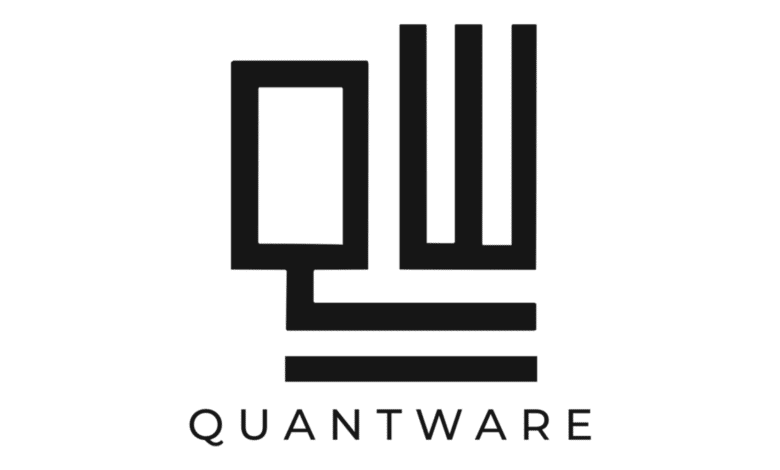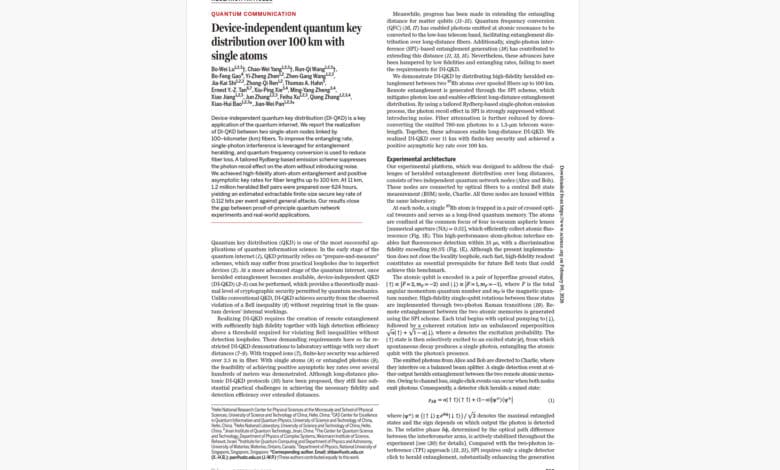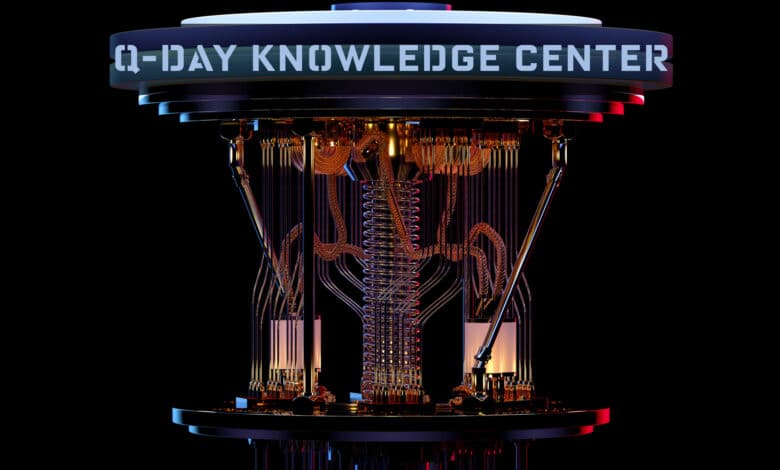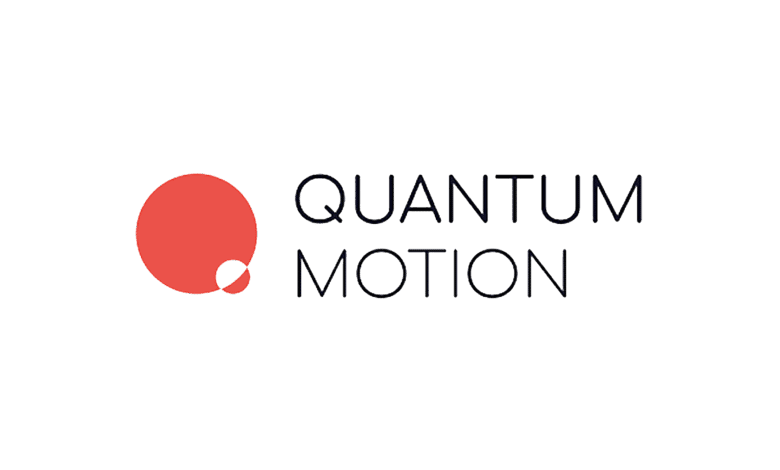My Articles, Opinions and Analyses
120,000 Tasks: Why Post‑Quantum (PQC) Migration Is Enormous
When I tell fellow CISOs, board members, or even seasoned program managers that the integrated program plan for a comprehensive quantum security / post-quantum cryptography (PQC) migration I recently worked on contained over 120,000 discrete tasks, the reaction is almost always the same. First, there is a polite silence. Then, the inevitable furrowing of the ...
QuantWare
QuantWare is a Delft, Netherlands-based quantum computing startup that provides superconducting quantum processors as off-the-shelf products. Founded in 2021 as a spin-out from TU Delft’s QuTech institute by Matt Rijlaarsdam and Alessandro Bruno, the company aims to be the “Intel of quantum computing” by supplying affordable, high-quality quantum QPU (quantum processing unit) chips for others ...
China Just Pushed Device-Independent QKD (DI-QKD) to 100 Kilometres
A team at the University of Science and Technology of China (USTC) published a paper in Science that quietly redrew the map of what device-independent quantum key distribution (DI-QKD) can do. Led by Bo-Wei Lu, Chao-Wei Yang, Run-Qi Wang, Xiao-Hui Bao, and the ever-present Jian-Wei Pan - the physicist sometimes called China's quantum communications supremo ...
Quantum Open Architecture (QOA): The “PC Moment” of Quantum Computing
Today, a sea change is underway. Quantum Open Architecture (QOA) is doing for quantum computing what the PC revolution did for classical computing - opening up the ecosystem. Just as the computing world shifted from monolithic mainframes to modular PCs with swappable parts, quantum tech is embracing modularity and specialization. Instead of one vendor building ...
Quantum Sovereignty in Practice: When Geopolitics Becomes Architecture
At its core, quantum sovereignty means having full control over the critical layers of quantum technology domestically - the ability to design, manufacture, and operate quantum systems without external dependency. In practice, this implies a country could build a complete full-stack quantum ecosystem entirely within its national borders: from quantum chips and cryogenic hardware to ...
NIS2, DORA, and the EU Post-Quantum Roadmap
If you are a CISO under NIS2 or DORA, you are already expected to run a risk-management system that tracks material, evolving threats - and to implement “state‑of‑the‑art” controls appropriate to the risk. The EU’s PQC roadmap is effectively saying: quantum is now one of those evolving threats you must govern. The most important conceptual shift ...
Telecom Quantum Readiness: Why the Urgency and Where to Start
An increasing number of telecom leaders have been pinging me lately about quantum readiness. And frankly, that’s exactly what they should be doing. New regulations and mandates are emerging left and right (in various jurisdictions and across the industry) requiring critical infrastructure to become quantum-safe in the coming years. As someone who used to run ...
How the EU Can Capture the Benefits of Quantum Computing
The European Union has entered the global quantum race with determination - aiming not just to excel in research, but to translate breakthroughs into economic and strategic benefits. In July 2025, the European Commission unveiled the Quantum Europe Strategy, a roadmap to make Europe a “quantum industrial powerhouse” by 2030. This strategy acknowledges Europe’s historic ...
Quantum Key Distribution (QKD): Why Countries Differ on Its Future
Quantum Key Distribution (QKD) - a method of securing communications using quantum physics - has become a flashpoint of debate worldwide. Recent news (like Google’s announcement favoring post-quantum algorithms over QKD) highlights how divided opinions are. Some nations are investing heavily in QKD networks as the next frontier of secure communications, while others remain skeptical ...
Q-Day Knowledge Center & Q-Day Framework and Estimator
Q-Day Knowledge Center - Your complete guide to understanding, forecasting, and preparing for quantum decryption risk ...
Sovereignty Stress Tests: Tabletop Scenarios for States and Enterprises
In an era of quantum and digital sovereignty, governments and companies must ensure they aren’t caught off-guard by geopolitical tech disruptions. Building on my previous analyses of quantum sovereignty and a number of Applied Quantum client engagements, I wanted to offer a practical scenario toolkit to “stress test” sovereignty. Instead of chasing total self-sufficiency, the ...
Rethinking CBOM
The simplest way to explain CBOM is still the best. If SBOM is the ingredients list for software, CBOM is the ingredients list for the security assumptions that software depends on. Where SBOM tracks components and dependencies, CBOM tracks cryptographic assets - algorithms, protocols, certificates, keys, and related material - and the relationships that turn ...
Experimental Quantum Error Correction Below Threshold
When Harvard’s neutral-atom team quietly dropped their new paper on a fault-tolerant architecture for universal quantum computation, a few days ago, it felt like the field had crossed an invisible line. For years we’ve had impressive pieces of the puzzle - better qubits here, a clever code there, some elegant theory everywhere – but Lukin’s ...
Investment Screening and M&A: When Capital Becomes a Quantum Sovereignty Vector
Foreign investment screening, acquisition scrutiny, and “strategic capital” policies increasingly shape which quantum technology companies survive - and where their intellectual property (IP) and talent ultimately reside. National security and technological sovereignty narratives are no longer abstract concerns; they influence the day-to-day decisions of quantum startups. The Sovereignty Stakes in Quantum Investment Quantum technologies are ...
Quantum Sovereign Optionality: Agility Over Autarky
Technical sovereignty has become a buzzword in geopolitical and tech circles. As global alliances fray and trust in traditional partners wanes, countries are scrambling to assert control over critical technologies. In the quantum arena, this instinct translates into an ambitious goal: build a complete, full-stack quantum ecosystem entirely within national borders. The allure is understandable ...
Silicon Quantum Computing
Silicon Quantum Computing (SQC) is an Australian quantum hardware company based in Sydney, founded in May 2017 as a UNSW Sydney spin-off by Prof. Michelle Simmons (2018 Australian of the Year). It was launched as Australia’s first quantum computing company with A$83 million in seed backing from the Australian government, UNSW, Telstra, Commonwealth Bank (CBA), ...
A Quantum Contrarian Con Artist
In the growing spotlight on quantum technology, a new kind of opportunist is taking the stage - the contrarian con artist. These are not the honest skeptics who ask hard questions in good faith. They are bad-faith actors cloaking themselves in “skepticism” to hijack the discourse around quantum computing and its related fields. As investment ...
Photonic Inc.
Photonic Inc. is a Vancouver-based quantum computing startup pioneering a distributed, fault-tolerant quantum computer architecture built on silicon spin qubits that are optically linked by photons. In contrast to monolithic quantum processors, Photonic’s design treats networking as a native feature: qubit modules are entangled together via telecom-fiber links, effectively combining quantum computing and quantum communication ...
Quantum Motion
Quantum Motion is a London-based quantum computing company pioneering a silicon-based approach to building scalable quantum computers. Founded in 2017 by UCL’s Prof. John Morton and Oxford’s Prof. Simon Benjamin, the startup spun out of those universities to harness traditional CMOS semiconductor technology for quantum processors. Unlike many competitors that rely on exotic fabrication, Quantum ...
Quantum Computing Due-Diligence: A Field Guide to Evaluating Startups, Technologies, and Claims
Over the years, I’ve developed a personal toolkit - a field guide - for evaluating quantum startups and their claims. The goal is to neither be swept up by the mystique nor dismiss genuine progress. This balance is crucial: the quantum field is rife with hype, now more than ever, and companies sometimes exaggerate to ...
Analysis of Quantinuum Helios, a 98‑Qubit Trapped‑Ion Quantum Computer
In November 2025, Quantinuum unveiled Helios, a new 98-qubit quantum processor that pushes the frontier of quantum computing with a novel trapped-ion architecture. It also published an accompanying paper on arXiv "Helios: A 98-qubit trapped-ion quantum computer." Helios is based on the quantum charge-coupled device (QCCD) design, meaning it physically moves ion qubits around on ...
Sovereign Quantum Clouds and National Control
Quantum computing is rapidly shifting from lab prototypes to cloud-based services. Most organizations will access quantum capabilities “as a service” through cloud platforms, rather than owning a quantum computer on-premise. This shift reframes the sovereignty debate. The question is no longer simply “Who owns the qubits?” but rather “Who controls the access to those qubits?” ...
Why We Need a Quantum Security ISAC
Quantum computing promises revolutionary capabilities, but it also poses unprecedented threats to cybersecurity. Experts warn of a looming “Quantum Apocalypse” scenario - the day when a sufficiently advanced quantum computer can crack encryption like RSA or ECC, exposing sensitive data that was once considered secure. And of course, there's the already present "harvest now, decrypt ...
Securing Quantum Computers – Threat at the Quantum-Classical Interface
A global race is on to build cryptographically relevant quantum computers (CRQCs) - machines powerful enough to break current encryption. Governments and industry are pouring billions into quantum R&D, and intelligence analysts scrutinize whether a geopolitical rival might secretly be ahead. Yet amid this focus on who builds a quantum codebreaker first, an alternative threat ...






















